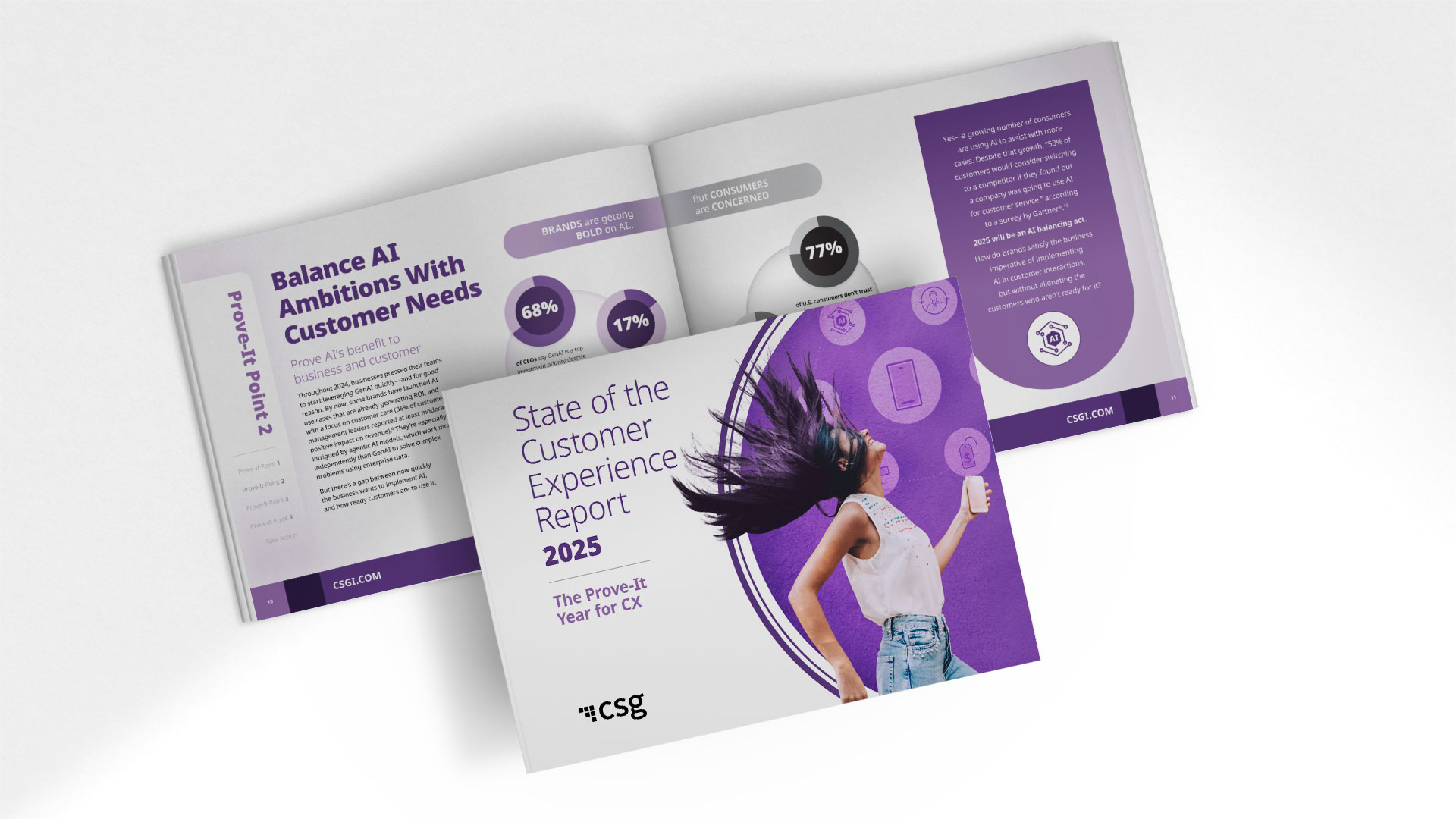Since the beginning of the generative AI boom, every communications service provider (CSP) has spent time thinking about how AI will best support its goals. They’ve explored AI use cases intended to improve backend operations and reimagine how they connect with customers. But are customers as eager to interact with AI-enabled customer support as CSPs are to provide it?
Our recent survey of 1,000 CSP customers across the globe gets to the heart of the matter, asking CSP customers about their sentiment around AI’s role in their experiences connecting with their CSP.
Major Takeaways From the Survey
1. An overwhelming majority of CSP customers want to use some form of AI-enabled customer support, especially over chat.
When it comes to seeking support, 85% of consumers prefer AI over a live agent in at least one customer service channel.
So, which channels do consumers prefer AI for? Chatbots are particularly popular with customers, with more than half (54%) of respondents noting chat as their preferred AI-based method of communication. Other popular channels include mobile apps (36%), email (32%) and phone calls (30%).
Why it matters:
Appetite for AI-driven services is on the rise among consumers, marking a turning point from early skepticism. But CSPs need to get their channel play right to meet customers where they are.
2. But remember: Customers will leave a CSP that doesn’t get AI right.
Loyalty is more critical than ever, as it leads to increased customer lifetime value, higher profit margins and more stable revenue streams. However, more than three-quarters (76%) of respondents said a frustrating experience with their CSP’s AI-powered customer service would negatively impact their loyalty to their provider.
So, it’s crucial to get AI right. But what does “getting AI right” look like? Respondents said they preferred AI tools that solve their issues faster (65%), offer 24/7 support (64%) and enable seamless handovers to human agents (61%).
Why it matters:
Customers are open to AI, but only when it’s used effectively to meet their needs, and they are willing to switch to another brand when the experience misses the mark. As customer retention is central to business success in 2025, CSPs must create AI-driven experiences carefully and keep their customers’ unique needs front and center. Cutting corners = playing with fire.
3. Younger customers are more inclined to use AI services, despite being less trusting of results.
When interacting with CSPs, Gen Z customers (30%) were the most likely to engage with AI-powered tools every time, followed by Millennials (21%), Gen X (13%) and Baby Boomers (8%). Conversely, Baby Boomers (33%) and Gen X (16%) were the most inclined to seek out live agents.
Interestingly, Gen-Z and Millennial CSP customers were also more likely to share concerns about the veracity of AI’s answers than were their older counterparts. About one-third of respondents in each of these groups selected “response accuracy” as a top concern about using AI, compared to just 27% of Gen-Xers and 28% of Baby Boomers.
Why it matters:
There is no one-size-fits-all AI blueprint that CSPs can follow. Instead, dig deeper to understand each unique customer to meet them in the moments that matter most, at every stage in their customer journey. Personalization is critical.
4. AI maturity remains a top concern for CSP customers.
Respondents’ main points of contention with customer support AI tools all revolved around the technology’s perceived immaturity and current limitations. The top concerns noted by respondents across generations and regions were the solutions’ inability to solve complex problems (55%) and difficulty understanding user queries (55%).
Why it matters:
AI is still an experimental technology and should be implemented with care and caution as organizations look to build trust with consumers. Avoid overreliance on automation; instead, blend human support and automation seamlessly to ensure a smooth experience for customers and employees. Speaking of which…
5. Customers want to use AI to improve their experiences with human agents.
Six of 10 respondents (61%) agreed that a top trait they looked for in an AI tool was a more seamless handover to a human agent. What’s more, a top concern with AI-driven customer support was the time it takes to reach a human representative when needed (chosen by 47% of respondents).
Why it matters:
Consumers appreciate AI that enhances, not replaces, the human contact center experiences they are accustomed to. Layer in AI thoughtfully and use it to make your contact center employees more effective, rather than using it as a replacement. AI-driven insights can empower contact center talent to offer a more personalized experience to each customer.
What This Means for CSPs
While the survey revealed key insights about the nuances of AI in CX, it also reaffirmed an essential truth; at the core of a successful CX strategy is making customers feel known, heard and understood. As CSPs and other organizations continue to explore the potential of AI, prioritizing the solutions that resonate most with customers will support the success of their AI deployments and drive customer loyalty.
Want More Insight on Balancing AI Ambitions with Customer Needs?
Read CSG’s 2025 State of the Customer Experience Report to discover how CSPs can demonstrate their CX leadership and deliver on their promise for better experiences.

Research Methodology
CSG’s AI and Customer Experience (CX) Survey, conducted by a third-party provider on Jan. 21, 2025, gathered insights from over 1,000 consumers per market across the U.S., U.K., France, Australia and Germany. The survey explored how AI is influencing personalization and customer experiences with CSPs. Responses were collected exclusively from consumers who confirmed knowing they’ve used AI when seeking support from their CSP(s).

